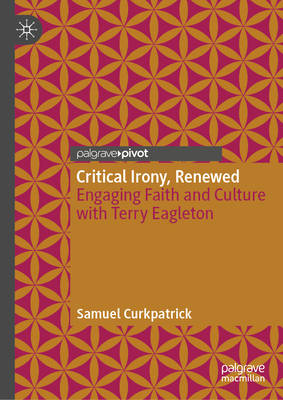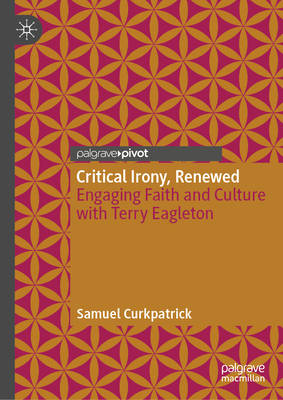
Bedankt voor het vertrouwen het afgelopen jaar! Om jou te bedanken bieden we GRATIS verzending (in België) aan op alles gedurende de hele maand januari.
- Afhalen na 1 uur in een winkel met voorraad
- In januari gratis thuislevering in België
- Ruim aanbod met 7 miljoen producten
Bedankt voor het vertrouwen het afgelopen jaar! Om jou te bedanken bieden we GRATIS verzending (in België) aan op alles gedurende de hele maand januari.
- Afhalen na 1 uur in een winkel met voorraad
- In januari gratis thuislevering in België
- Ruim aanbod met 7 miljoen producten
Zoeken
Critical Irony, Renewed
Engaging Faith and Culture with Terry Eagleton
Samuel Curkpatrick
Hardcover | Engels
€ 53,45
+ 106 punten
Omschrijving
Irony is a pervasive quality of human life, though its creative, comic potential is often overlooked. Traditionally, it has been cast in a subversive role, as the tool of the detached critic or sceptic. In Critical Irony, Renewed, Samuel Curkpatrick offers a fresh take, showing how irony can transform negativity to inspire imagination, hope and ethical action. Drawing on the work of literary theorist Terry Eagleton, this book explores the potential for irony to renew social and political imagination, while retaining a clear-eyed view of human fragility and limitation. Curkpatrick examines Eagleton's writings alongside the comic tonalities of Christian parables, revealing how irony can function as a means of saying by unsaying - a dynamic and paradoxical form of critical perspective that enriches human creativity, ethical engagement and cultural dialogue. Critical Irony, Renewed demonstrates that irony, far from undermining identity, faith and culture, opens new possibilities for understanding and transforming our world. A compelling exploration for scholars and general readers alike, this work redefines irony's role in literature, culture, philosophy and theology, offering a glimpse of how we might think and act differently amid the very contradictions of human experience.
Specificaties
Betrokkenen
- Auteur(s):
- Uitgeverij:
Inhoud
- Aantal bladzijden:
- 131
- Taal:
- Engels
Eigenschappen
- Productcode (EAN):
- 9783032081506
- Verschijningsdatum:
- 8/01/2026
- Uitvoering:
- Hardcover
- Formaat:
- Genaaid
- Afmetingen:
- 148 mm x 210 mm
- Gewicht:
- 285 g

Alleen bij Standaard Boekhandel
+ 106 punten op je klantenkaart van Standaard Boekhandel
Beoordelingen
We publiceren alleen reviews die voldoen aan de voorwaarden voor reviews. Bekijk onze voorwaarden voor reviews.









